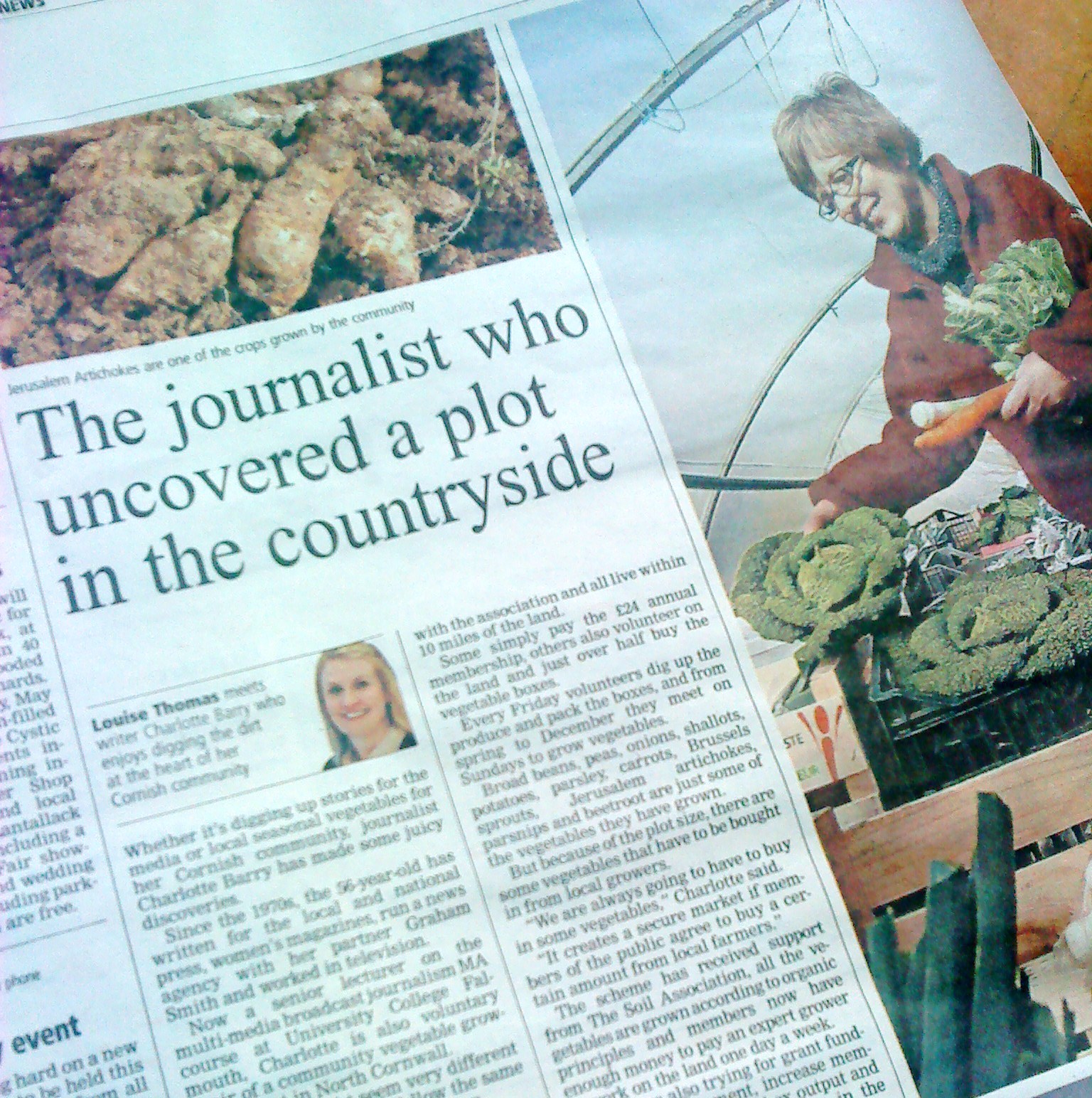
April 26, 2010
Our pioneering work as a community supported agriculture project in north Cornwall makes a feature in the Western Morning News today.
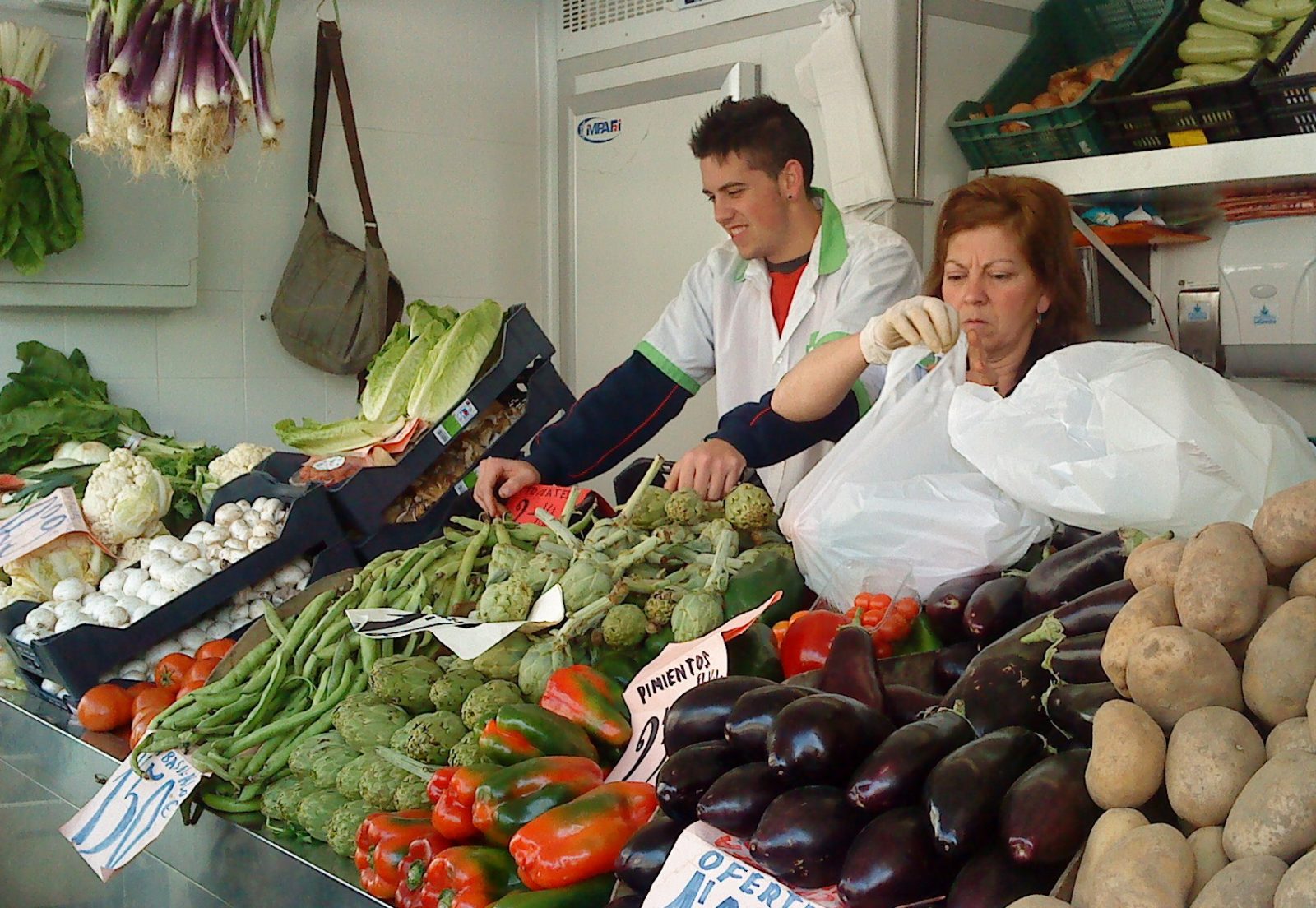
There haven’t been many opportunities to post to the blog recently. Events in Iceland meant my visit to southern Spain was longer than planned.
Bliss – lots of fresh local vegetables on the stalls in Cadiz market and not much sign of a hungry gap!
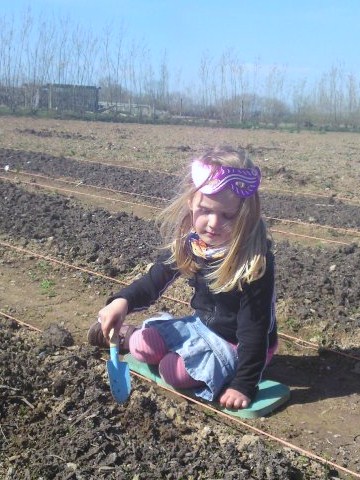
April 25, 2010
We’re now entering the traditional “hungry gap”, which means that the normally wide variety of local, home-grown veg is becoming increasingly hard to come by in the UK.
It’s the time of year when the root crops and brassicas of winter and early spring either run out or start to bolt in the increasingly warm weather.
At the same time, we’re waiting for the late spring and summer crops to grow.
So what can we do to fill the weekly vegetable boxes short-term?
Rather than go beyond Cornwall or even outside the UK, we’ll probably start to fill the boxes with more “high-value” vegetables such as Cornish mushrooms from Tregonning Farm, Stithians.
When the asparagus season begins, you may find that it’s one of only a few vegetables in the boxes. But well worth it! And extremely local – from Cornish Asparagus at Lower Croan, Sladesbridge.
We’ll also have some vegetables cultivated in polytunnels by our own expert growers – salad leaves, radishes, spring onions, spinach and coriander.
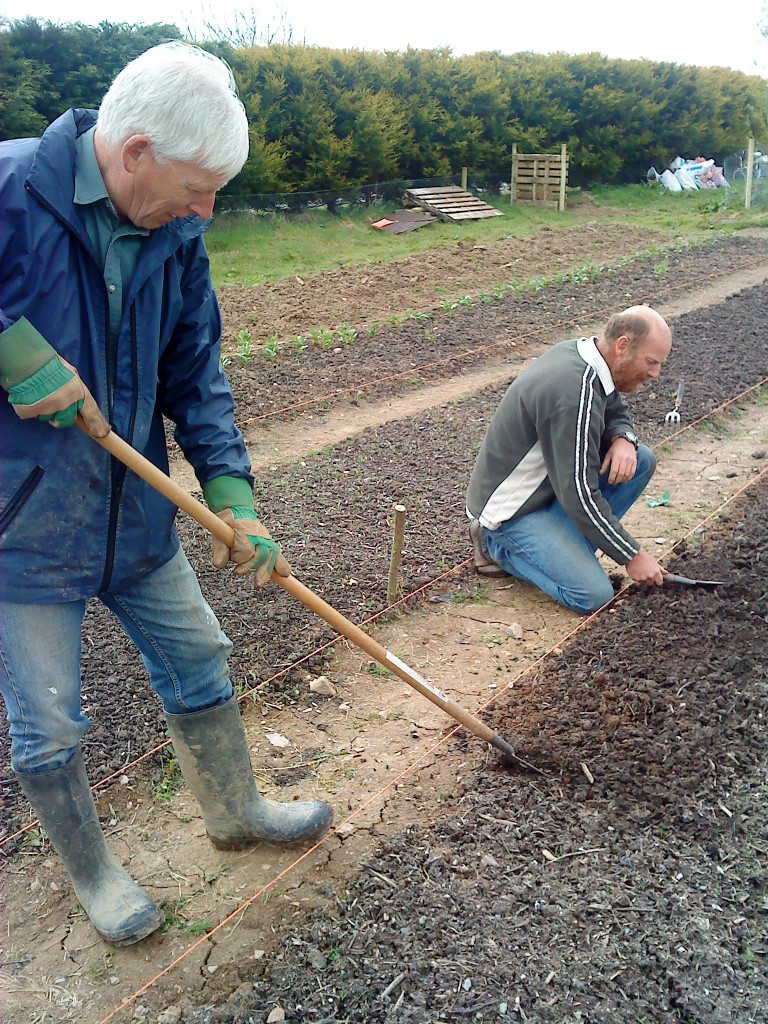
Growing fast
The growing team have been busy preparing seed beds and sowing all kinds of veg – Swiss chard, rainbow chard, perpetual spinach, beetroot and carrot seeds.
They’ve planted out the first of the lettuces brought on in the polytunnel, and pricked out celery and celeriac seedlings.
Over the last two Sundays our volunteers have also been erecting a much-needed fence to keep out the rabbits, which seem to be multiplying by the minute.
Thanks to expert growers Jeremy and Mark N and to volunteers Cath, Charlotte, Danny, Fiona, Fred, Jerry, Kitty, Mark M, Mike S and Theresa. And to our younger helpers Finn and Keira.
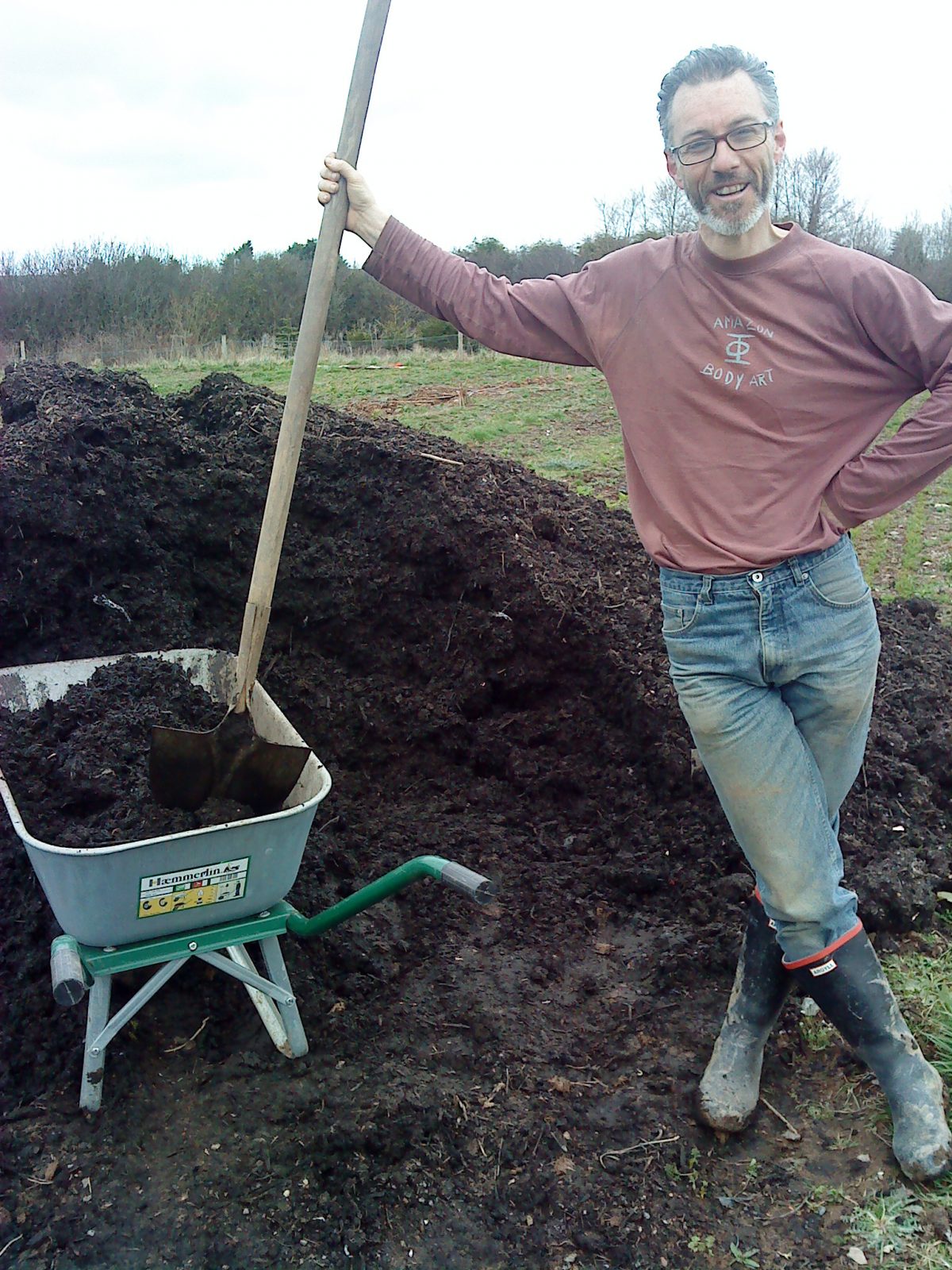
April 10, 2010
Make the most of this lovely spring weather. Come and share in the push to get our vegetables in the ground. There’s lots to do.
We need plenty of people at our volunteer growing session this Sunday 11 April to prepare some more beds and spread compost. There’s also celery and broad beans to plant out as well as beetroot and parsnip seeds to sow.
Please join us between 10am and 1pm on Sunday. You’ll find us on the plot behind St Kew Harvest Farm Shop. If you can, bring tools – hoes, spades, forks, trowels, rakes, wheelbarrows.
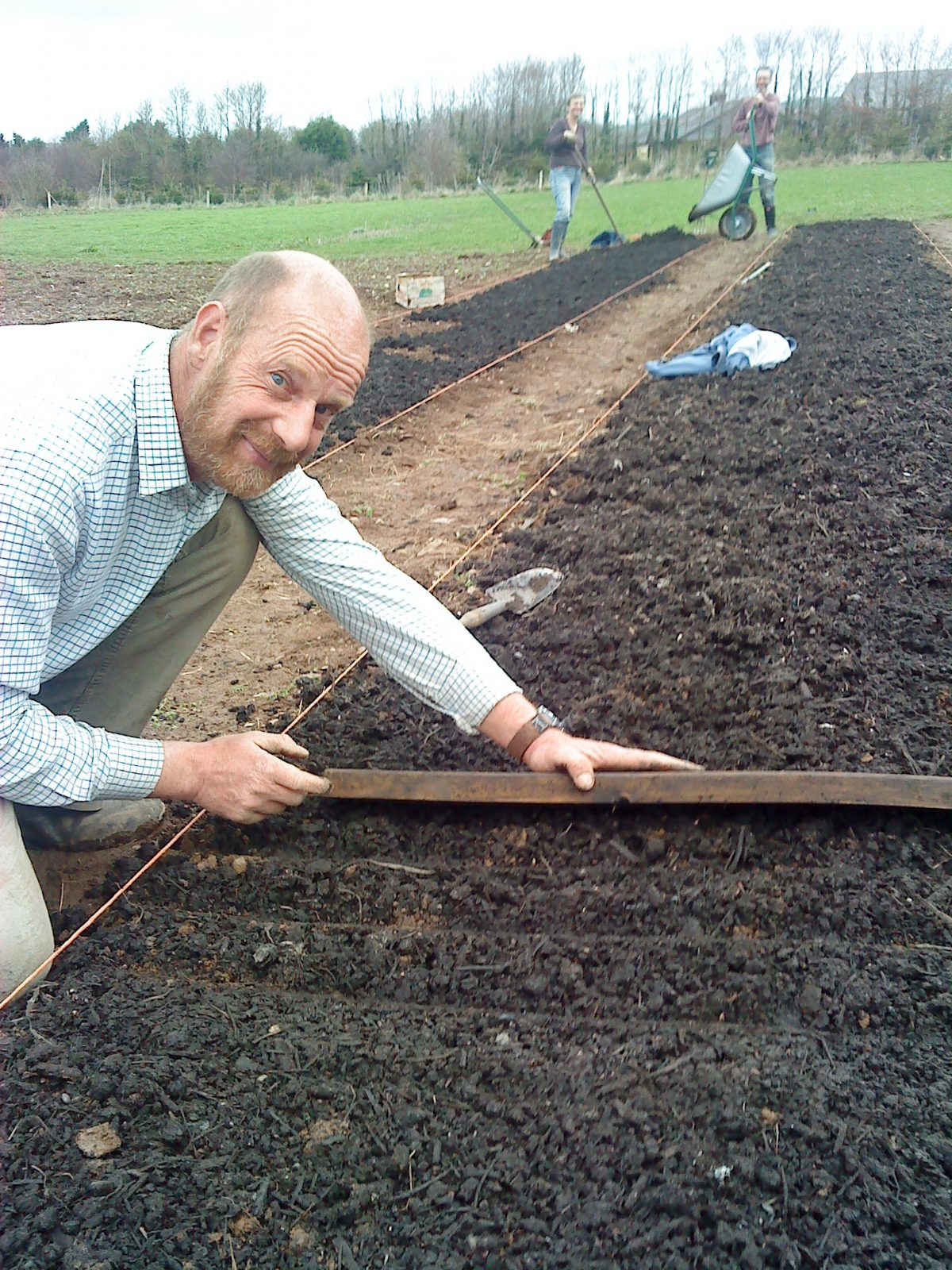
April 3, 2010
The next volunteer growing session is on Sunday 11 April. We’ve decided to give everyone a rest this Easter Sunday.
We do need all the help we can get to plant veg at this time of year so please consider coming along for a couple of hours next Sunday between 10am and 12 noon.
You’ll be made very welcome. We can guarantee you unlimited fresh air, plenty of exercise and some friendly company… PLUS you’ll come away feeling you’ve achieved something worthwhile.
Expert grower Mark Norman says:
“A small gang of us created a new growing bed, spread compost, and sowed lettuce and beetroot Detroit last week. But we really could have done with some extra assistance.
On Sunday 11 April there’ll be broad beans and celery to plant out, and more beetroot plus parsnip to sow. Also compost to spread and additional growing beds to prepare. Please bring tools – hoes, spades, forks, trowels, rakes, wheelbarrows…”
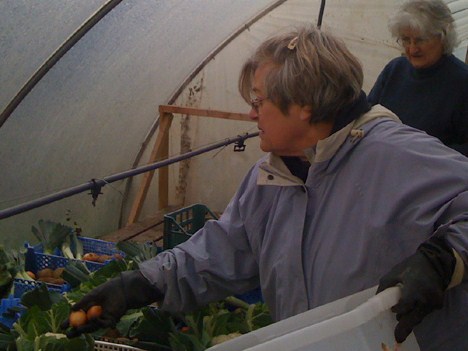
March 27, 2010
Our picking and packing volunteers urgently need shelter from the Cornish wind and rain.
Each week they prepare around 30 vegetable boxes for Camel CSA members on Friday mornings. Last summer we were blessed with blue skies and warm sunshine nearly every Friday, but come the autumn it was a different story.
Over the winter we’ve been borrowing one end of a polytunnel from Jeremy Brown, one of our expert growers. But now the growing season has begun he needs it to cultivate vegetables for his business at St Kew Harvest Farm Shop.
We’re looking for a second-hand shed that’s at least 4m x5m in size. Ideally it would have a roof overhang or a verandah. We’re also on the look-out for an unwanted polytunnel that’s a minimum of 7m long and 4m wide. Just a frame for a tunnel would be a great help. We’ll pay, of course.
If you know anyone who might be able to help, please get in touch with us.
Members of the volunteer growing team will be flexing their muscles this Sunday morning digging up dockleaves, spreading compost and preparing more vegetable beds. Beetroot and lettuce seeds also need sowing.
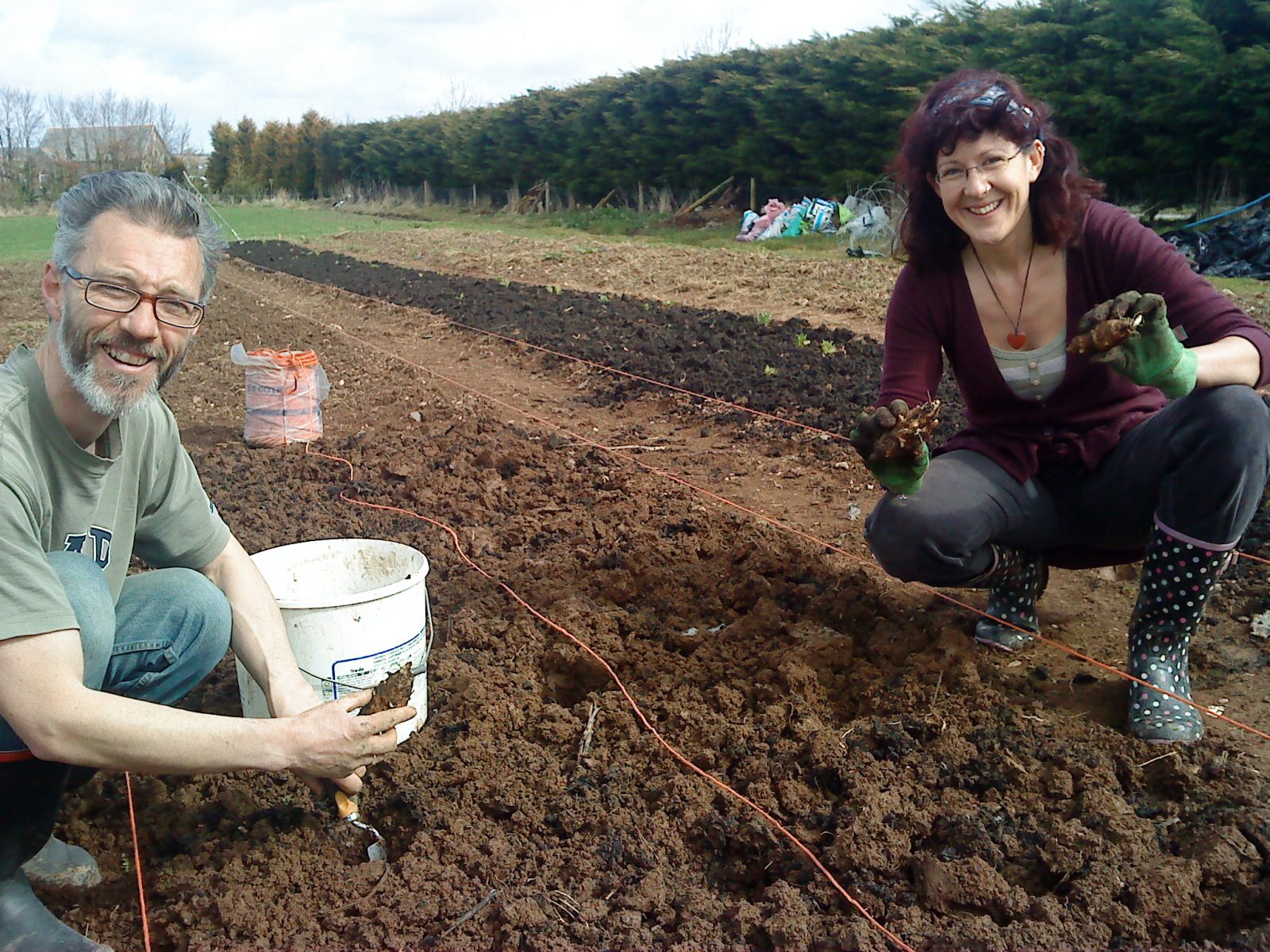
March 22, 2010
It’s all a bit nerve-racking. We’ll hear soon whether we’re going to get funding to help widen our activities.
A Lottery Food Fund assessor came for a site visit on Sunday. Kate Harris needed to see for herself exactly who we are and what we get up to. She asked our core group members lots of leading questions and met the volunteer growing team.
Kate watched the volunteers prepare vegetable beds, spread compost, plant Jerusalem artichokes, sow parsley seed for germination in the polytunnel and renew their attack on the dockleaves which are sprouting everywhere in the mild weather.
It’s her job to report back and make a recommendation on our funding bid. The all-important decision will be made in April. It’s a highly competitive scheme, so we reckon we’ve got about a 50% chance – at best.
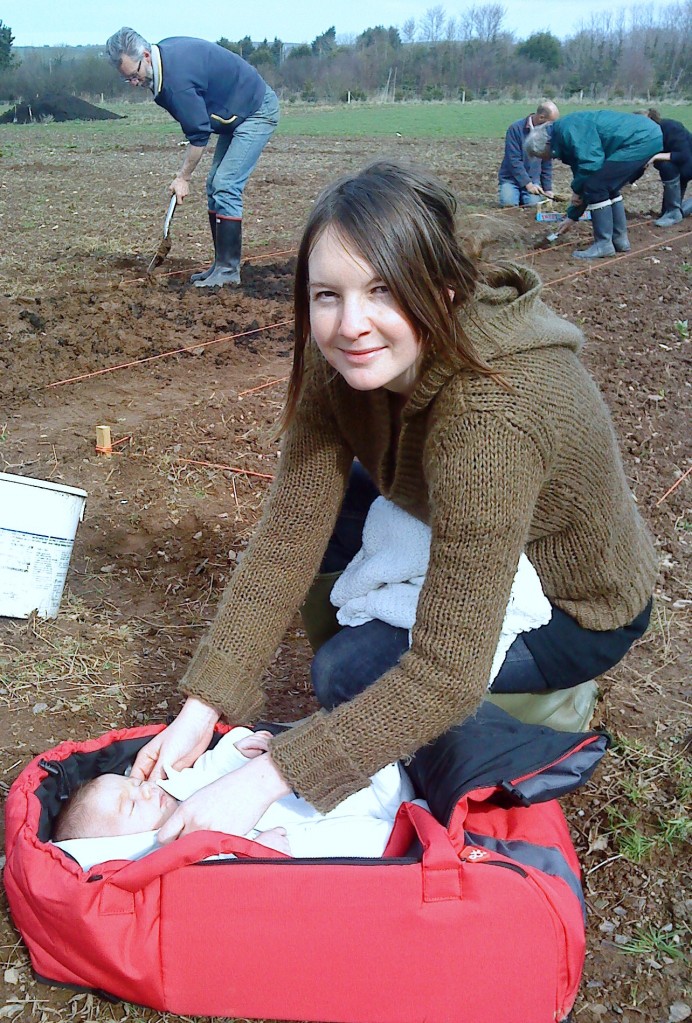
In May we’ll hear whether we’ve been successful in our application for funding from the East Cornwall Local Action Group.
Whatever the result, we’ll keep going as a CSA – growing vegetables, working with the seasons and providing our members with a share of the harvest. It’s just that if our bids are unsuccessful, we’ll have to wait before we can invest in much-needed equipment, set up an education and training programme and provide secure employment.
For the first time on Sunday everyone had the chance to meet Daisy, expert grower Jane Mellowship’s five-week-old daughter. She arrived in a waterproof “baby trug” – ideal in the circumstances!
Many thanks to expert grower Mark Norman and volunteers Cath, Charlotte, Danny, Frank, Kitty, Mark M, Mike H, Mike S and Robert.
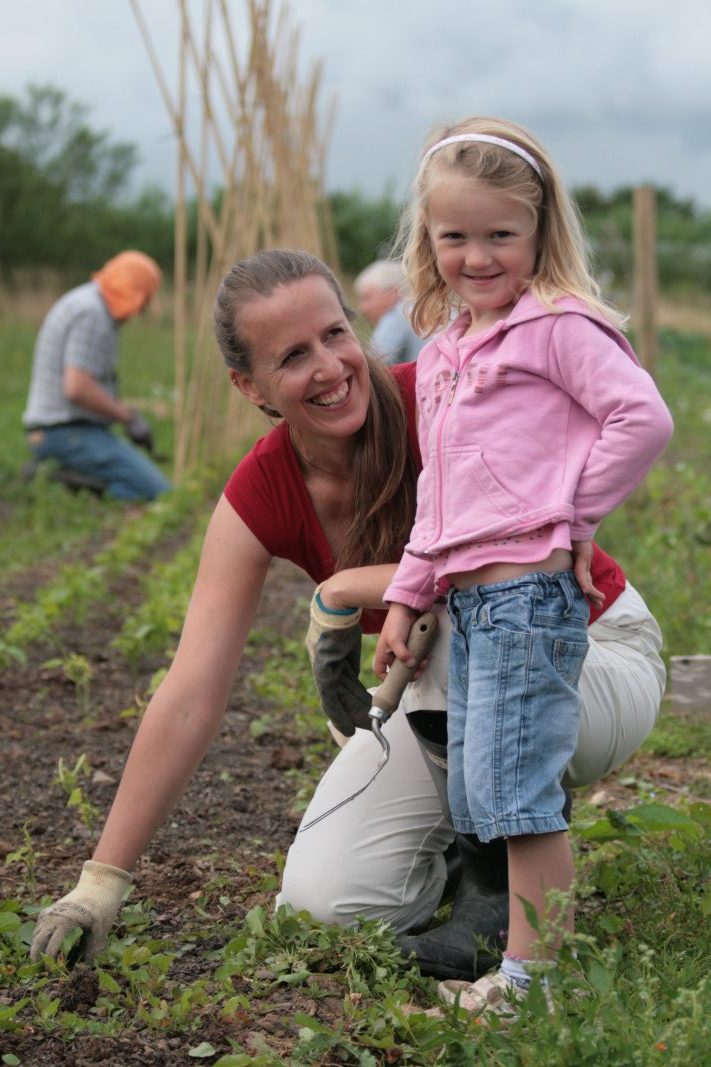
March 20, 2010
Community supported agriculture… It’s quite a mouthful isn’t it? And even more to get your head round.
I’ve lost count of the number of times I’ve been asked the question: “How are your allotments going?” Or: “What’s the latest on your veg box scheme?”
This sort of remark is kindly meant, of course. But sometimes it makes me want to scream: “That’s not what we’re about. We’re a community supported agriculture project.”
Which means little to 99.9% of the people I come across.
A community supported agriculture (CSA) project has very specific characteristics. It aims to reconnect people with the land where their food is grown. It’s a partnership between farmers and members of the local community. The economic risks and benefits are shared between those who grow the food and those who consume it.
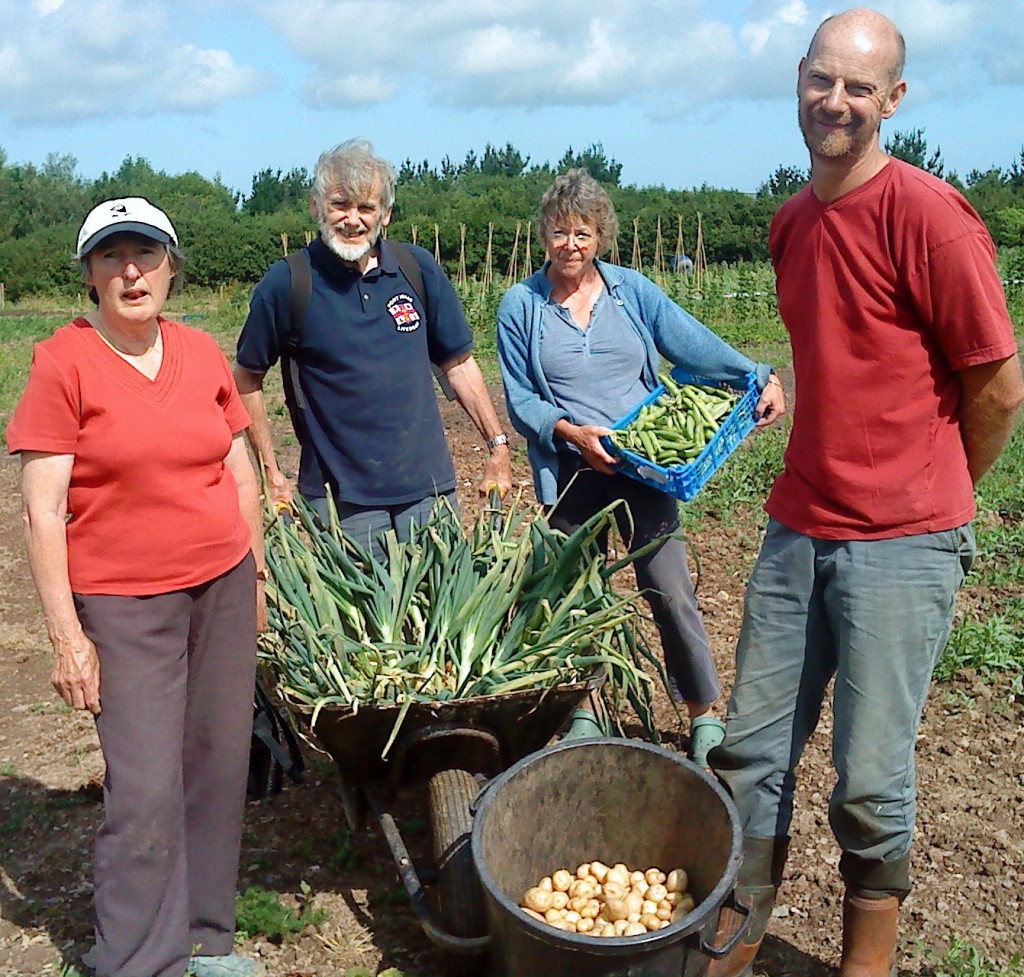
Local food
It’s all part of an expanding grassroots movement found across Europe, Japan, the US and Australia. It comes in many different shapes and sizes – from large farms supplying produce to hundreds of regular subscribers to small community food-growing projects like ours at St Kew Highway in north Cornwall.
It can be hard work, as it nearly always requires some voluntary input. But the common thread running through every single initiative is a willingness to co-operate over food production, to connect with the land and to commit to working with the seasons to produce a steady supply of local food.
And that’s why those of us who belong to Camel Community Supported Agriculture are proud to be part of this growing movement.
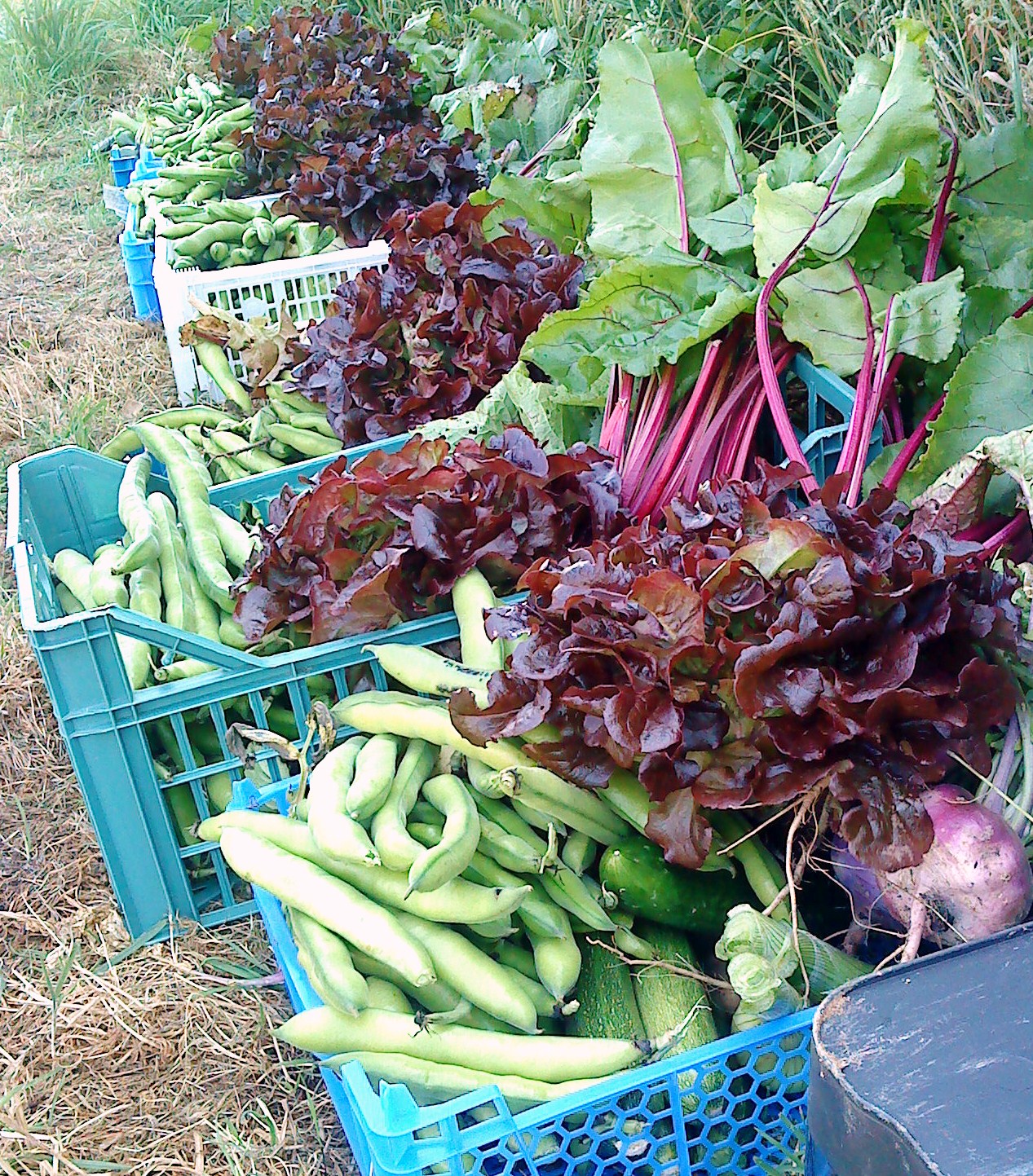
March 16, 2010
Now the moment everyone’s been waiting for. We can finally reveal what’s going to be in Camel Community Supported Agriculture’s vegetable boxes from June onwards.
There’s a fantastic selection to look forward to. Our own volunteer growing team will be cultivating a variety of root crops, salad leaves and herbs on our plot behind St Kew Harvest Farm Shop at St Kew Highway.
Our own share of the harvest will include early carrots, broad beans, parsnips, beetroot, radish, celeriac, Jerusalem artichokes, self-blanching celery, bulb fennel, sweetcorn, salad leaves, Swiss chard, perpetual spinach, parsley and coriander.
Our team of three expert growers will be providing the bulk of the other vegetables, apart from winter brassicas and main crop potatoes. Between them, they’re growing a tremendous variety.
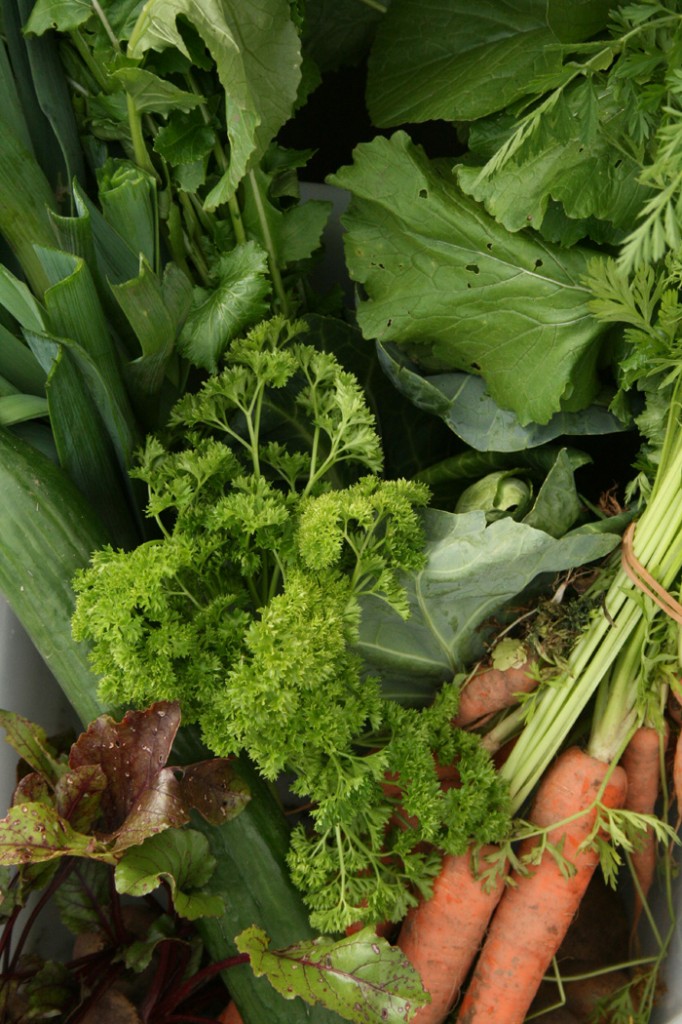
Organic
Jane Mellowship, who gave birth to Daisy in February, is concentrating solely on growing in her polytunnel on the coast at New Polzeath. She’s supplying early spring onions, French beans and chilli peppers.
Mark Norman has a permanent bed system and a polytunnel on his sloping, south-facing plot on the eastern outskirts of Bodmin. He’s planning to supply quantities of runner beans, main crop carrots, courgettes, garlic, kohl rabi, leeks, onions, spring onions, early potatoes, squash, pumpkin, swede, peppers and blackcurrants.
Jeremy Brown grows vegetables for his business at St Kew Harvest Farm Shop on land and in polytunnels adjoining the shop. This year he’s also cultivating some autumn raspberries and strawberries.
He’ll provide the veg boxes with main crop French beans, purple sprouting broccoli, main crop carrots, courgettes, leeks, onions, spring onions, peas, early potatoes, squash, pumpkins, turnip, cucumber, tomatoes and basil.
All the crops listed above will be grown to organic principles.
CSA members will also be harvesting dessert and culinary apples from the orchard we’ve adopted at West End, St Mabyn. These will be used for juicing as well as eating.
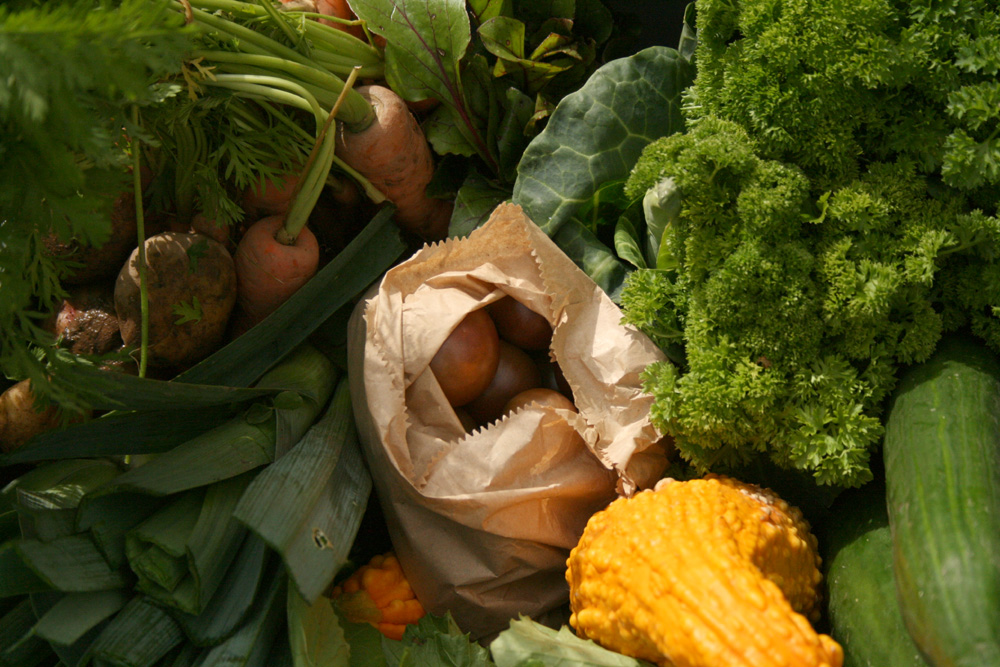
Local
Once again, we hope to buy in autumn and winter brassicas from Richard Hore, who cultivates a range of all-season crops for his own veg stall at Restharrow Farm, Trebetherick.
He’ll be supplying us with Brussels sprouts, purple sprouting broccoli, calabrese, summer and winter cabbage, cauliflower and kale from his fields close to the Camel estuary.
Next winter we aim to get main crop potatoes from Johnny Brown (Jeremy’s Dad) at Benbole Farm, St Kew Highway and from Colin and James Mutton at Burlerrow Farm, St Mabyn.
If we fall short of filling the boxes with a good variety or if the box numbers rise significantly, it’s possible we might need to buy in extra quantities from other small-scale local suppliers.
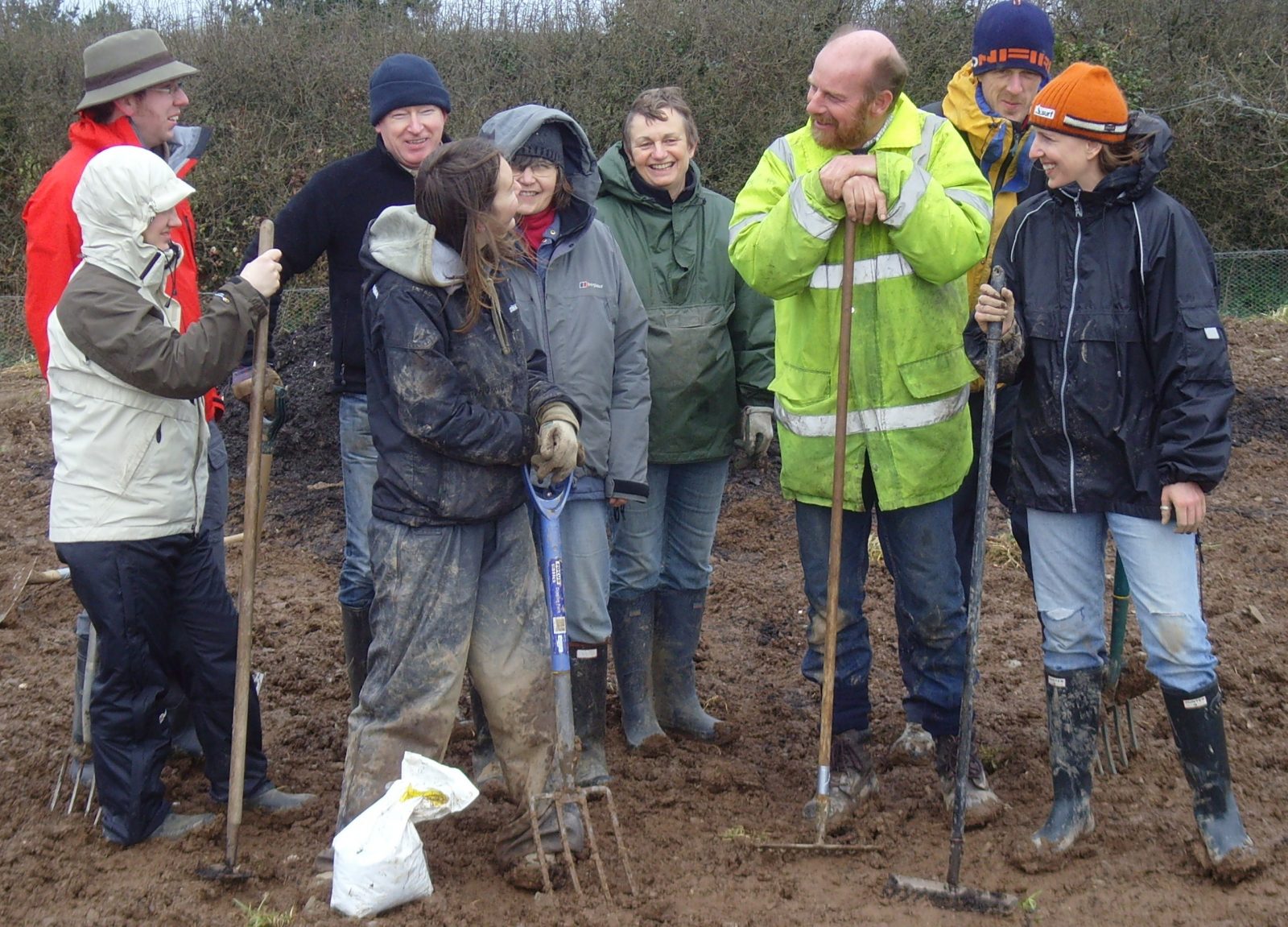
March 9, 2010
You’re all invited to join our first vegetable growing session of the year this Sunday 14 March. It’s exactly a year to the day since our volunteer team started preparing the ground and planting the first seeds.
We’ll be out in force from 10am onwards on Camel CSA’s site behind St Kew Harvest Farm Shop, just outside St Kew Highway. There’s plenty of parking.
Please turn up any time between 10am and 12 noon. We’re a friendly and energetic bunch and you’ll be made to feel very welcome. We represent all ages, shapes and sizes.
Be prepared to get your hands dirty. Wear old clothes, boots and a hat and bring gardening gloves.
If it’s threatening rain you’ll need a waterproof jacket and some waterproof trousers, as there’s limited shelter from the elements. If you can, please bring tools – forks for tackling the dockleaves, plus hoes and hand tools for weeding the broad beans and garlic. We’ll be planting some celeriac and parsley seeds into modules as well.
We always stop for a refreshment break – tea, coffee and water are provided. You may want to bring a snack to boost your energy levels as it can be hard work! If you’d like to know more about these Sunday growing sessions, don’t hesitate to contact us.
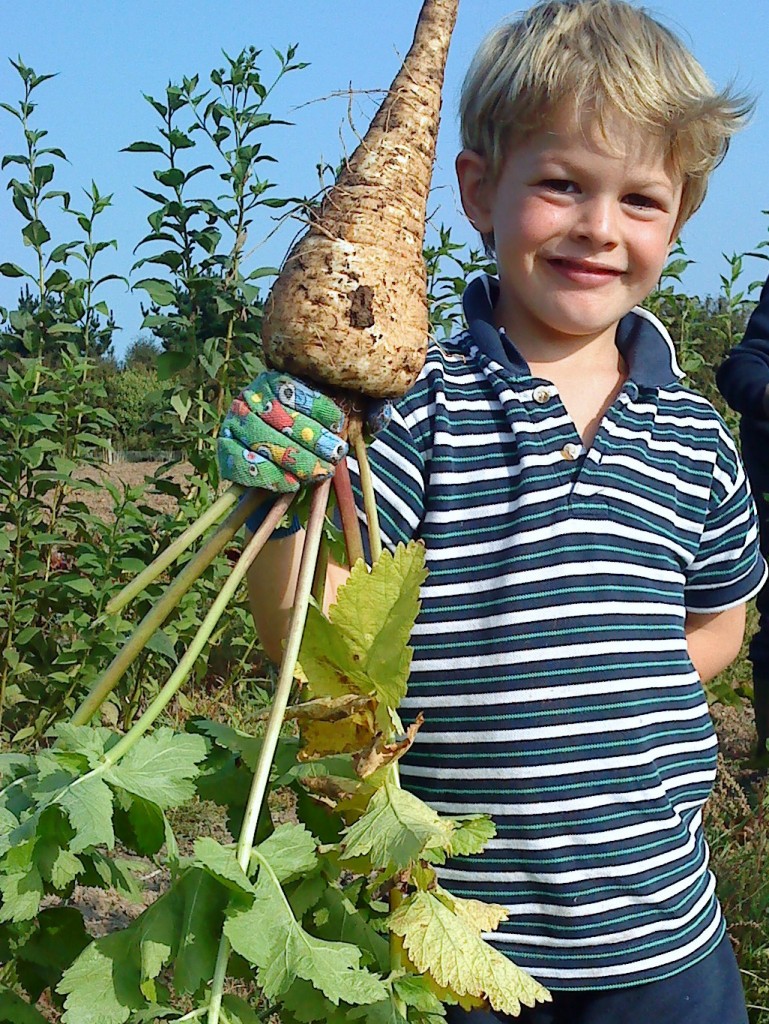
Other jobs
If you’d rather help with preparing vegetables and packing veg boxes, you can join our volunteer picking and packing team on a Friday morning between 10am and 12 noon.
This enthusiastic and sociable group has been turning out every week since our first harvest last July.
A few of the regulars normally have a cup of coffee or tea (cakes optional!) in the shop afterwards. Please contact us if you’d like to join the Friday picking and packing rota.
Lastly, if admin’s more your thing we can always use your skills. Please get in touch with a member of the core group to find out what needs doing. There’s always something on the to-do list.


